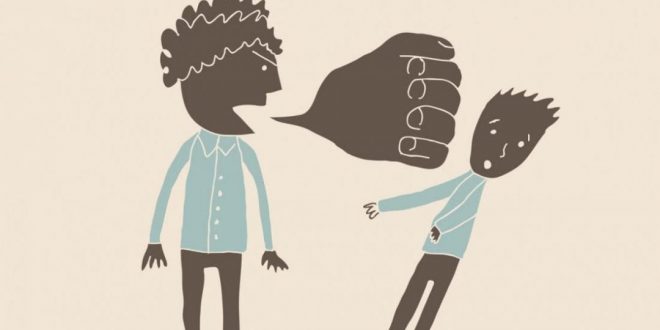People suffering from Narcissistic Personality Disorder constitute about 2% to 16% of the world’s clinical population, making it difficult for both the person living with it and those around them. This can be especially difficult if they are parents struggling to figure out what is best for a child. A narcissistic personality disorder is especially prevalent in men.
Many adults do not realize that they have been raised by a narcissistic parent until they themselves are adults, and coping with this realization can be upsetting or difficult.
Wrapping your brain around the potential effects of this kind of environment could be easier with the help of a therapist. BetterHelp is an online therapy resource website that can help parents and people trying to come to terms with how their parents raised them.
Listed below are a variety of signs that can help you better understand the after-shocks of being around or experiencing this disorder and whether you’re coping well with them.
You’re always afraid

The road to recovery from narcissistic parenting starts with trying to overcome feelings of fear. Research shows that adults who grew up with narcissistic parents constantly lived in a state of fight-or-flight. They could be on edge and are easily startled.
Even many years after childhood, the fear can remain, because their brains were programmed to be fearful by default.
Extreme examples of narcissistic parenting can induce PTSD if left undiagnosed and untreated. Adults who experienced narcissistic parenting often like to be prepared and do not like surprises.
When things don’t go as predicted, they are pushed into a state of anxiety, self-doubt, and fear. The world feels dangerous and unpredictable. For adults who grew up with narcissistic parents, this state of fear becomes a lifestyle and the only way they know how to function.
Some of these adults return to the damaging patterns they witnessed in their childhood and apply them to new situations. This can negatively affect their social lives, work-life, and even their own parenting if it is ignored and internalized.
Meditation, therapy, and familial support are some of the ways that one can try coping with fear stemming from narcissistic parenting.
You constantly feel tired

When one suffers from a major psychological shock or other exhausting mental illnesses like anxiety, the after-effects are something that has been described as a “hangover” of sorts.
In a simple scientific explanation, during an attack, the body prepares for the fight-or-flight mode, which includes releasing hormones like adrenaline and increases blood pressure. Since the body is preparing for an emergency, blood flow is redirected and the whole body can be impacted.
Since adults who grew up with narcissistic parents may live in a constant state of fear, their adrenaline levels are high. Excess production of adrenaline, which is caused by too many dramatic bodily changes, can cause feelings of exhaustion in people who have suffered major psychological shocks.
Exercising, hydrating, meditating, and practicing self-care are some ways in which one can combat feelings of exhaustion and fatigue. If your own research and coping mechanisms seem unhelpful, consider seeking out a mental health professional to develop a plan.
You struggle to control your emotions

Increased emotional volatility is a real effect of mental health disorders and should not be trivialized. People who have had difficult childhoods or experience a psychological shock may feel extreme emotions. Some people may be colloquially described as emotional, dramatic, overreactive, or having an “anger problem,” when really they just need a little help. Long-term effects of stress are to be blamed for increased emotional volatility in people who had narcissistic parents.
Some after-effects of having a very stressful life are restlessness, sadness, and feelings of emptiness. Narcissistic parenting can cause long-term increased emotional volatility in children and adults alike. People who are considered to be emotionally volatile tend to be on either side of the spectrum, either hyper-accommodating or recalcitrant.
Some ways in which one can keep emotional volatility in control are yoga, meditation, various therapy practices, and tai chi.
You feel a low sense of self-worth

The concept of self-esteem begins during childhood. Children who feel loved and valued by their parents often find it easier to value themselves and develop healthy self-esteem.
Self-esteem is basically your opinion of yourself. For people who grew up with narcissistic parents, their self-esteem may start low and slowly creep into adulthood.
Poor self-esteem has a variety of repercussions if not addressed early. It can lead to poor confidence, promoting a poor choice in friends and partners, affecting the quality of decisions being made, and avoiding challenges. Negative social comparison is one of the biggest after-effects of having poor self-esteem caused by narcissistic parenting.
Building self-esteem is a journey and not something that can be accomplished in a day. Some tasks to help start and aid the process are forgiving yourself, practicing self-acceptance, being mindful about how you speak to yourself, and exercising.
Conclusion
Healing from narcissistic parenting can be tough, and there is no need to do it alone. From identifying and acknowledging the root cause to being consistent with healing, one can learn to manage the symptoms and lead a happy and successful life.
If you are struggling with mental health due to aftershocks from narcissistic parenting, consider participating in regular counseling to develop a plan to cope with your symptoms.
 Hi Boox Popular Magazine 2024
Hi Boox Popular Magazine 2024



